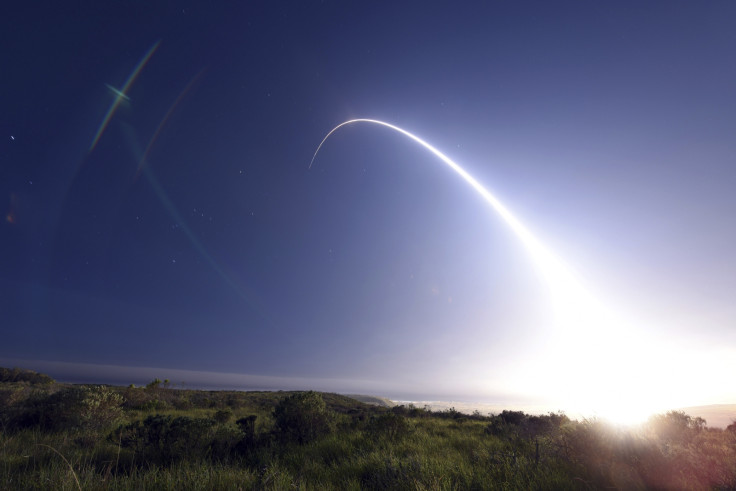US to test ballistic missile defences amid rising threat from North Korea
A 'kill vehicle' will be launched to intercept a missile over the Pacific Ocean.
For the first time the United States will conduct a test to shoot down an intercontinental ballistic missile (ICBM) amid rising tensions with North Korea.
The test will involve the firing of a missile aimed for the US mainland as the rogue state continues to improve its nuclear weapons capabilities and missile technology.
If successful, the test will involve a "kill vehicle" fired from the Vandenberg Air Force Base in California that will intercept a ICBM-class target from the Reagan Test Site in the Marshall Islands, destroying the object over the Pacific Ocean.
The test will utilise America's Ground-Based Midcourse Defense (GMD) system, managed by Boeing, which counters airborne threats from North Korea and others by intercepting missiles. However, it has never before been tested with an ICBM.
In all it has been tested 17 times since 1999, but the interceptor has a shaky history having failed to stop the target in eight of the tests.
The most recent test in June 2014 was successful, but it followed three successive failures.
North Korea has tested a number of ICBMs in recent months, however Christopher Johnson, a spokesman for the US Missile Defense Agency, said the US test of defensive capabilities was planned well in advance and was not drawn up in response to any recent developments.
"We conduct increasingly complex test scenarios as the program matures and advances," Johnson said on Friday. "Testing against an ICBM-type threat is the next step in that process."
The missile-defence programme evolved from former President Ronald Reagan's push for a "Star Wars" solution to nuclear threats during the Cold War.
Now, it has grown into a multi-billion dollar programme, with the Pentagon proposing to spend $7.9bn (£6.17bn) on missile defence in its 2018 budget.
The test of the missile defence system will take place on Tuesday (30 May).

© Copyright IBTimes 2025. All rights reserved.






















